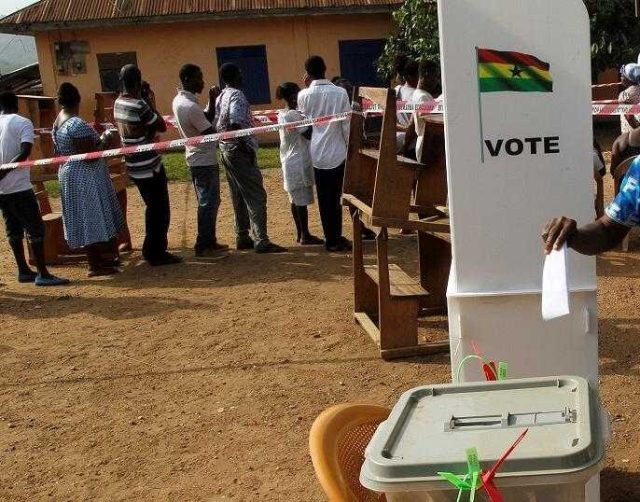As Ghanaians prepare to cast their votes today, December 7, 2024, it is essential to reflect on the 2020 general elections, a contest that shaped the current political landscape and provided critical lessons for democracy in Ghana.
The 2020 elections were characterized by close parliamentary contests, high voter turnout, and significant political drama that underscored the vibrancy of Ghanaian democracy.
A hotly contested presidential race
The 2020 presidential election saw a fierce battle between Nana Addo Dankwa Akufo-Addo of the New Patriotic Party (NPP) and John Dramani Mahama of the National Democratic Congress (NDC).
President Nana Akufo-Addo with Former President, John Mahama
In the end, President Akufo-Addo secured re-election with 51.3% of the vote, while Mahama garnered 47.4%. This slim margin highlighted the competitive nature of the election and the deep divisions within the Ghanaian electorate.
A divided parliament
One of the most notable outcomes of the 2020 elections was the unprecedentedly close parliamentary results. For the first time in Ghana’s Fourth Republic, the 275-member parliament was almost evenly split between the NPP and the NDC.
Each party secured 137 seats, with one independent candidate holding the balance of power. This development introduced a new dynamic into parliamentary proceedings, as no party held an outright majority.
The nearly equal split in Ghana’s 2020 Parliament, with both the NPP and NDC securing 137 seats each, resulted in significant governance challenges. This balance required compromises on major legislation and policy directions, slowing some governmental processes but fostering greater accountability and dialogue between parties.
The 2024 campaign season has seen political parties speaking to their voters on a more granular level. There is heightened voter awareness about the implications of parliamentary composition on policy implementation.
Marginal constituencies and close contests
Several parliamentary races were decided by razor-thin margins, emphasizing the importance of every single vote. For instance, the Sene West constituency was won by just 16 votes, while the Banda seat was secured by a mere 81 votes.

The razor-thin margins in these constituencies highlighted the critical importance of each vote. They also underscored the need for robust electoral systems to handle recounts and disputes efficiently, as well as the necessity for parties to prioritize voter mobilization in strongholds and swing areas
In 2024, parties have intensified grassroots campaigns in marginal constituencies, acknowledging their decisive role in parliamentary and presidential outcomes. Increased security measures have also been put in place to ensure peace during close contest disputes.
Flashpoints and electoral security
The 2020 elections were marked by tensions in certain constituencies identified as electoral flashpoints.
Flashpoints in the 2020 elections, particularly in regions like Ashanti, Central, and Greater Accra, required heavy security presence to prevent violence and maintain order. The heightened tensions in these areas affected voter confidence and led to calls for stronger electoral conflict management systems.
Despite these challenges, the elections were largely deemed free and fair by domestic and international observers, though the aftermath saw some disputes.
For 2024, the Electoral Commission and the National Election Security Taskforce have identified and prepared for potential flashpoints, deploying early warning systems and additional resources to maintain peace. Civic education campaigns have also aimed to reduce voter tensions in historically volatile areas.
Lessons for the 2024 elections
Voter engagement: The 2020 elections showcased the importance of engaging voters on issues that matter to them. With voter turnout reaching approximately 79%, political parties demonstrated their ability to mobilize supporters effectively.
Institutional independence: The Electoral Commission’s role in managing a credible election was critical. Its reforms, including the use of new biometric verification systems, were lauded despite initial scepticism.
Collaboration and compromise: The hung parliament that emerged from the 2020 elections required political actors to adopt a more collaborative approach to governance. This shift from partisanship to compromise may set a precedent for the next parliament.
Ghana is poised for another milestone – in yet another dynamic election
As Ghana heads to the polls today, the lessons from 2020 remain relevant.
The close contests, robust voter participation, and the need for peaceful elections underline the resilience of Ghana’s democracy. With an electorate that is more informed and politically aware than ever, 2024 promises to be another defining moment in the nation’s history.
These pivotal outcomes from the 2020 elections serve as critical lessons for today’s elections. The measures taken to address these issues underscore Ghana’s commitment to strengthening its democratic processes.
As voting begins, the focus remains on ensuring peace, transparency, and inclusivity.















